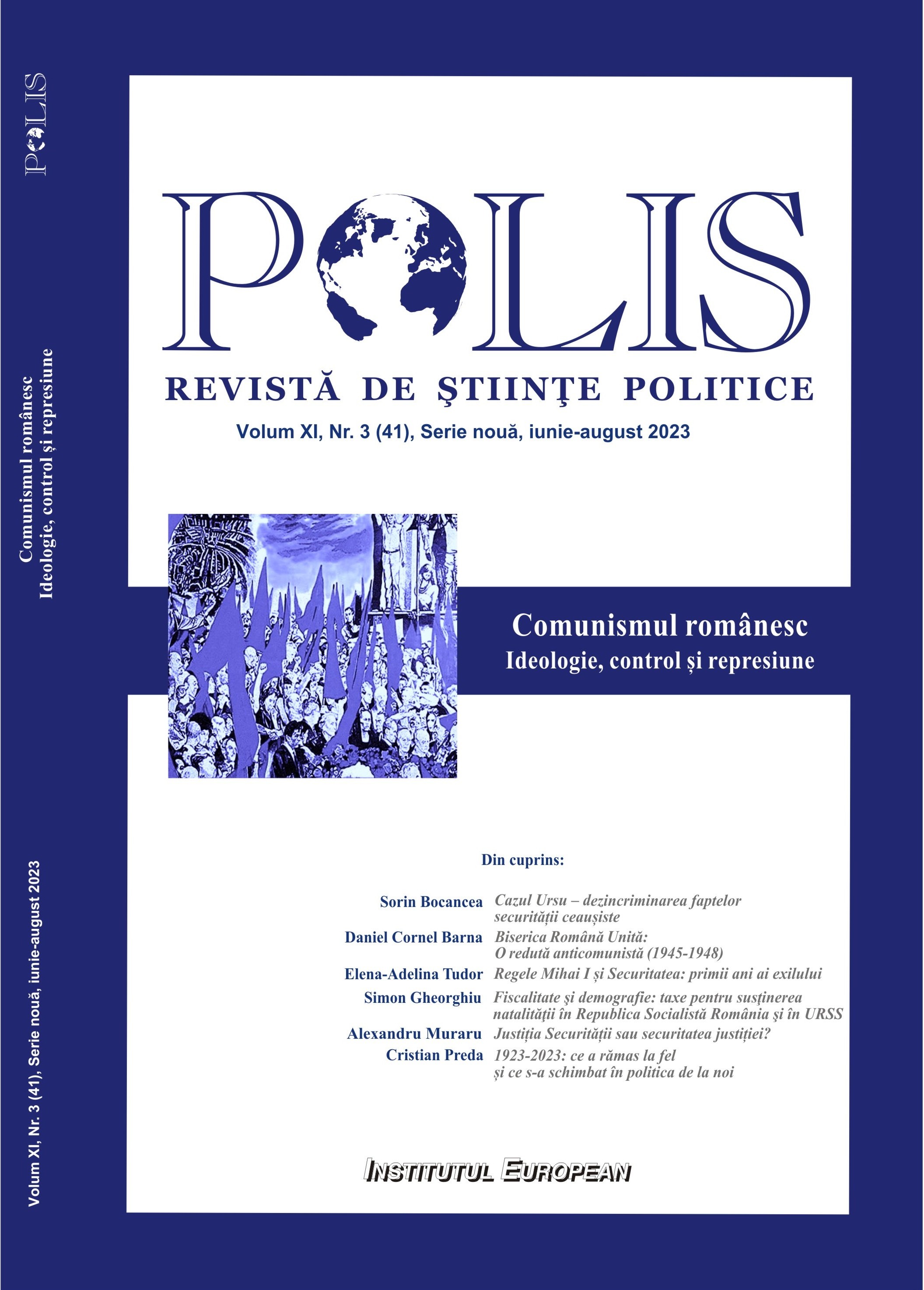Fiscal policy and demography: taxes for supporting the birth rates in the Socialist Republic of Romania and the USSR
Fiscal policy and demography: taxes for supporting the birth rates in the Socialist Republic of Romania and the USSR
Author(s): Simion GheorghiuSubject(s): Politics / Political Sciences, Philosophy
Published by: Editura Institutul European
Keywords: Socialism; demographic policy; fiscal policy; tax on celibacy; Family;
Summary/Abstract: The article focuses on one aspect of the Ceauşescu regime’s demographic policy, namely the taxation of the income of persons without children. The tax measure was introduced on 31 December 1966, with effect from 1 January 1967, and consisted of a sum of money paid by childless people aged 25 and over, regardless of whether they were married or not. In parallel, the article also addresses the taxation of the income of single people and people with small families in the USSR, where a similar tax has been introduced since 1941. Unlike in Romania, in the Soviet Union the tax was paid by men aged 20 to 50 who had no children regardless of their marital status, and women aged 20 to 45 paid the tax only if they were married and had no children.Although it was criticised for violating people's individual rights, the tax was maintained in Romania until 1989 and in the USSR until 1991.
Journal: Polis. Journal of Political Science
- Issue Year: XI/2023
- Issue No: 3(41)
- Page Range: 169-177
- Page Count: 8
- Language: English

